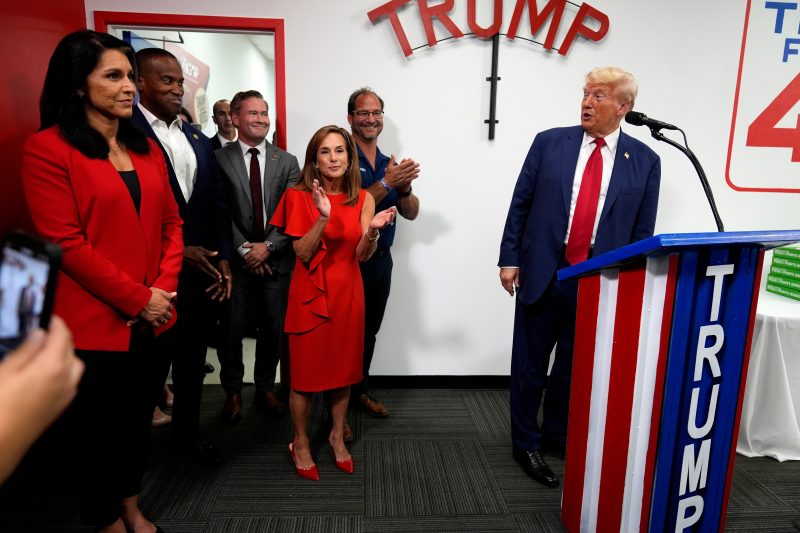The recent news of former President Donald Trump adding Robert F. Kennedy Jr. and Tulsi Gabbard to his transition team has stirred significant interest and speculation across the political landscape. Both Kennedy Jr. and Gabbard bring unique perspectives and experience to the table, fueling discussions about the direction of Trump’s proposed transition plan. Let’s delve deeper into the backgrounds and potential implications of their involvement.
Robert F. Kennedy Jr., the son of the late Senator Robert F. Kennedy and nephew of President John F. Kennedy, is a prominent environmental activist and attorney known for his work on issues such as climate change, conservation, and vaccine safety. His inclusion in Trump’s transition team has raised eyebrows among both supporters and critics, given Kennedy’s history of outspoken criticism against certain government policies and pharmaceutical practices.
Kennedy’s presence in the transition team suggests that Trump may prioritize environmental and health-related matters in his post-presidential endeavors. His expertise in these areas could offer valuable insights and recommendations for potential initiatives or policy changes that the administration may pursue. However, Kennedy’s controversial stance on vaccines and skepticism towards certain public health measures may also spark debates and disagreements within the team and beyond.
On the other hand, Tulsi Gabbard, the former Democratic congresswoman from Hawaii and 2020 presidential candidate, brings a contrasting political perspective to the transition team. Gabbard, known for her non-interventionist foreign policy views and progressive positions on issues like criminal justice reform and cannabis legalization, could offer a fresh voice and alternative approach to Trump’s post-presidential agenda.
Gabbard’s inclusion in the team signals a potential interest in bipartisan collaboration and outreach by Trump, as well as a willingness to consider diverse viewpoints in shaping future strategies. Her presence may help bridge ideological gaps and foster constructive dialogue among team members with differing political backgrounds and priorities. However, Gabbard’s departure from the Democratic Party and her controversial stances on issues like Syria and national security could also draw scrutiny and raise questions about the team’s overall objectives and coherence.
Overall, the addition of Robert F. Kennedy Jr. and Tulsi Gabbard to Trump’s transition team marks a notable development in the post-presidential landscape, indicating a mix of continuity and innovation in the former president’s future endeavors. Their involvement suggests a potential focus on environmental, health, and foreign policy issues, as well as a commitment to inclusivity and diversity of thought in decision-making processes.
As the transition team continues to take shape and define its priorities, the public will closely monitor the contributions and outcomes of individuals like Kennedy Jr. and Gabbard in shaping the trajectory of Trump’s post-administration activities. Their interactions with other team members, their policy recommendations, and their public statements will likely shape the narrative and impact of Trump’s transition in the months to come.

